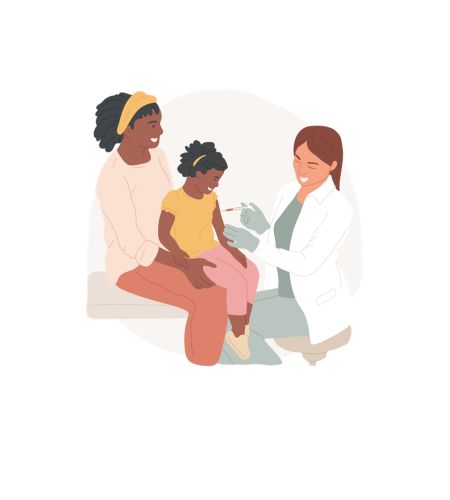Pediatric nursing is a highly specialized field that focuses on the care and well-being of infants, children, and adolescents. Pediatric nurses play a crucial role in providing comprehensive healthcare services to young patients. In this article, we will explore the 10 duties and responsibilities of pediatric nurses in child health care, shedding light on the vital role they play in ensuring the health and happiness of children.
1. Conducting Physical Assessments and Monitoring Vital Signs
Pediatric nurses are responsible for conducting thorough physical assessments of their young patients. They carefully observe and document vital signs such as temperature, heart rate, respiratory rate, and blood pressure. By monitoring these vital signs, nurses can identify any abnormalities or changes in the child’s health and take appropriate action.
2. Administering Medications and Treatments
Another crucial duty of pediatric nurses is administering medications and treatments to children. They must have a strong understanding of dosage calculations and be skilled in various administration techniques, such as oral, intravenous, and intramuscular routes. Nurses must ensure accurate medication administration and monitor the child for any adverse reactions.
3. Providing Emotional Support to Patients and Their Families
Children may feel scared, anxious, or confused when receiving medical care. Pediatric nurses play a pivotal role in providing emotional support to both the child and their family members. By offering a compassionate and reassuring presence, nurses help alleviate fear and anxiety, creating a more positive healthcare experience for young patients.
4. Educating Patients and Families about Health Promotion and Disease Prevention
Pediatric nurses educate patients and their families about health promotion and disease prevention strategies. They provide valuable information about proper nutrition, hygiene practices, immunizations, and safety precautions. By equipping families with this knowledge, nurses empower them to make informed decisions and actively participate in maintaining their child’s well-being.
5. Collaborating with Multidisciplinary Healthcare Teams
Pediatric nurses work collaboratively with multidisciplinary healthcare teams to ensure the holistic care of their patients. They communicate and coordinate with physicians, therapists, social workers, and other healthcare professionals to develop and implement comprehensive care plans. By working together, these teams can provide the best possible care for children.
6. Assisting in Pediatric Procedures and Surgeries
Pediatric nurses assist in various pediatric procedures and surgeries. They prepare the child and their family for the procedure, provide preoperative and postoperative care, and monitor the child’s condition throughout. By ensuring a smooth and safe experience, nurses contribute to the successful outcomes of these procedures.
7. Documenting Patient Information and Maintaining Medical Records
Accurate and detailed documentation is vital in healthcare settings. Pediatric nurses are responsible for documenting patient information, including medical history, assessments, treatments, and any changes in the child’s condition. They maintain medical records, ensuring that all information is organized and easily accessible to the healthcare team.
8. Advocating for Child Health and Safety
Pediatric nurses are passionate advocates for child health and safety. They actively promote policies and practices that prioritize the well-being of children. Nurses may participate in community outreach programs, provide educational resources, and raise awareness about child health issues. By advocating for children, nurses help create a healthier and safer environment for young individuals.
9. Conducting Health Screenings and Developmental Assessments
Regular health screenings and developmental assessments are crucial for identifying potential health issues or developmental delays in children. Pediatric nurses perform these assessments, which may include vision and hearing screenings, growth measurements, and developmental milestones evaluations. By detecting concerns early on, nurses contribute to timely interventions and improved outcomes for children.
10. Supporting Families in Difficult Times
Pediatric nurses provide support to families during challenging times, such as when a child is diagnosed with a chronic illness or faces end-of-life care. They offer emotional support, provide information about available resources, and help families navigate complex healthcare systems. By being a source of comfort and guidance, nurses play a vital role in supporting families through difficult situations.
Conclusion
Pediatric nurses play a vital role in child health care, providing compassionate and specialized care to young patients. Their duties and responsibilities range from conducting physical assessments and administering medications to providing emotional support and advocating for child health and safety. By fulfilling these roles, pediatric nurses contribute significantly to the well-being of children and their families, ensuring a healthier and brighter future for the next generation.
FAQs
- Q: What qualifications are required to become a pediatric nurse?
- To become a pediatric nurse, you need to complete a Bachelor of Science in Nursing (BSN) program and obtain a nursing license. Specialized certification in pediatric nursing is also beneficial.
- Q: What skills are essential for a pediatric nurse?
- Essential skills for pediatric nurses include excellent communication, empathy, critical thinking, attention to detail, and the ability to work well in a team.
- Q: How do pediatric nurses handle challenging or frightened children?
- Pediatric nurses use various techniques to handle challenging or frightened children, such as distraction, play therapy, and providing a comforting environment. They aim to build trust and create a positive experience for the child.
- Q: Can pediatric nurses specialize in a specific area of child health care?
- Yes, pediatric nurses can specialize in areas such as neonatal care, pediatric oncology, pediatric intensive care, or pediatric cardiology. Specialization allows nurses to develop expertise in a particular field.
- Q: How does a pediatric nurse contribute to patient education?
- Pediatric nurses provide patient education by explaining medical procedures in child-friendly language, answering questions, and providing educational materials to both patients and their families.
- Q: What challenges do pediatric nurses face in their profession?
- Pediatric nurses may face challenges such as witnessing children in pain, dealing with grieving families, and balancing the emotional demands of the profession. However, the rewarding nature of their work often outweighs these challenges.
